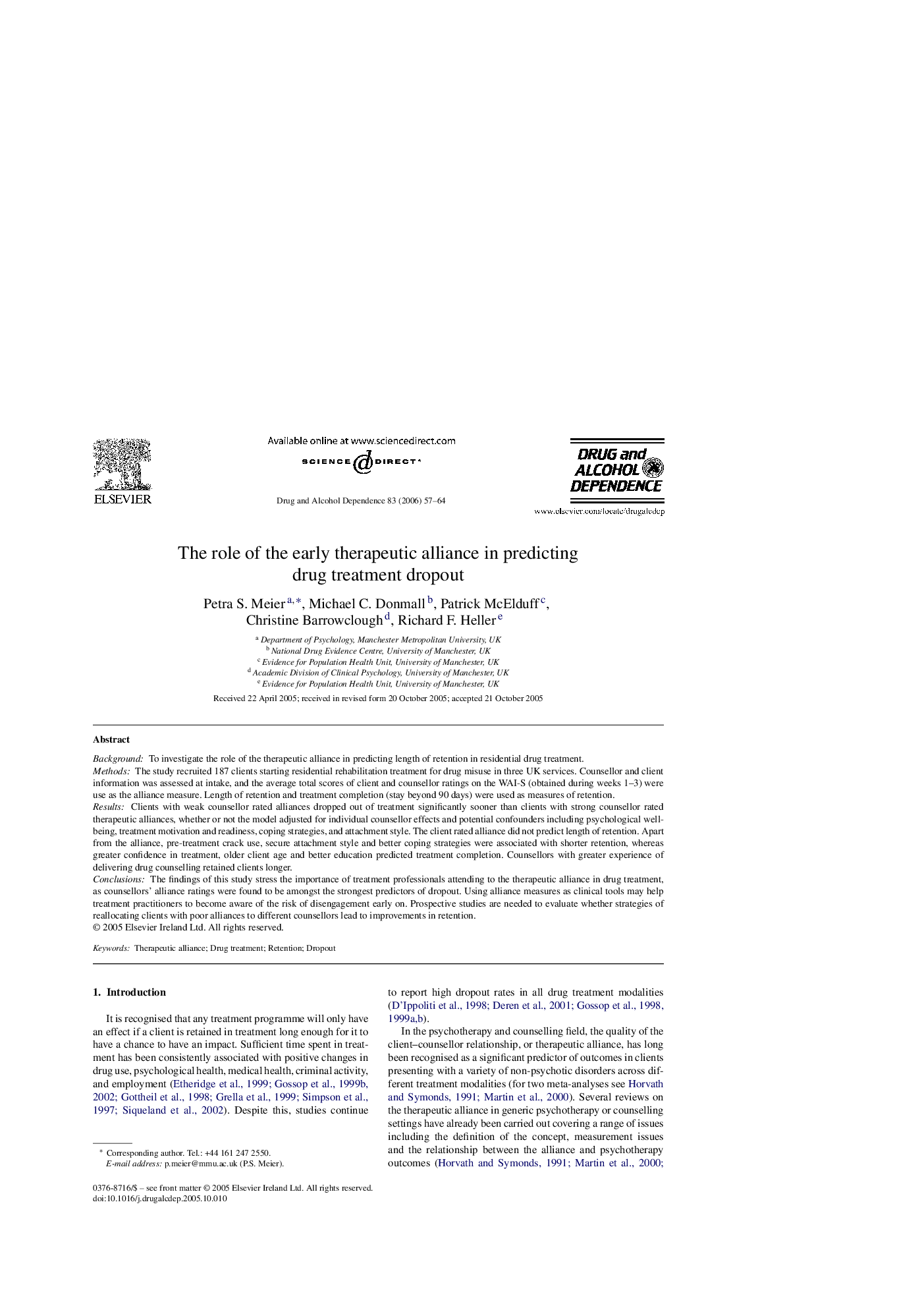| کد مقاله | کد نشریه | سال انتشار | مقاله انگلیسی | نسخه تمام متن |
|---|---|---|---|---|
| 1071868 | 949442 | 2006 | 8 صفحه PDF | دانلود رایگان |

BackgroundTo investigate the role of the therapeutic alliance in predicting length of retention in residential drug treatment.MethodsThe study recruited 187 clients starting residential rehabilitation treatment for drug misuse in three UK services. Counsellor and client information was assessed at intake, and the average total scores of client and counsellor ratings on the WAI-S (obtained during weeks 1–3) were use as the alliance measure. Length of retention and treatment completion (stay beyond 90 days) were used as measures of retention.ResultsClients with weak counsellor rated alliances dropped out of treatment significantly sooner than clients with strong counsellor rated therapeutic alliances, whether or not the model adjusted for individual counsellor effects and potential confounders including psychological well-being, treatment motivation and readiness, coping strategies, and attachment style. The client rated alliance did not predict length of retention. Apart from the alliance, pre-treatment crack use, secure attachment style and better coping strategies were associated with shorter retention, whereas greater confidence in treatment, older client age and better education predicted treatment completion. Counsellors with greater experience of delivering drug counselling retained clients longer.ConclusionsThe findings of this study stress the importance of treatment professionals attending to the therapeutic alliance in drug treatment, as counsellors’ alliance ratings were found to be amongst the strongest predictors of dropout. Using alliance measures as clinical tools may help treatment practitioners to become aware of the risk of disengagement early on. Prospective studies are needed to evaluate whether strategies of reallocating clients with poor alliances to different counsellors lead to improvements in retention.
Journal: Drug and Alcohol Dependence - Volume 83, Issue 1, 9 June 2006, Pages 57–64